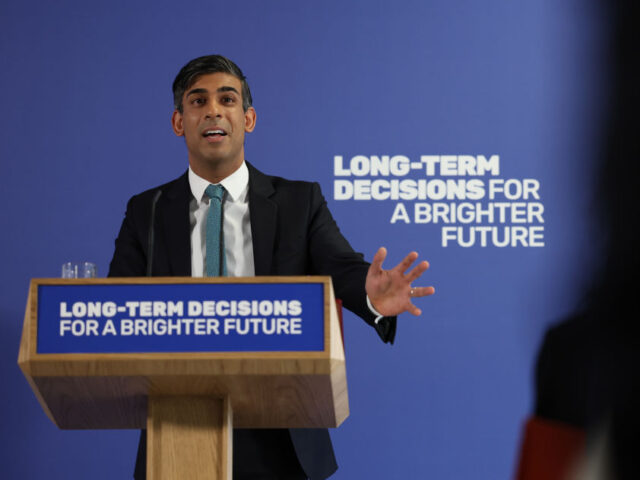The British government’s ability to cut taxes is limited because of a series of recent events including government intervention for Coronavirus and the war in Ukraine, voters have been told as the Conservative party shifts to soften up its voters ahead of the looming general election.
British Prime Minister and Conservative Party leader Rishi Sunak signalled a claimed change in his approach to the economy in a speech on Monday, saying he was satisfied inflation had fallen enough to begin talking about tax cuts, perhaps the most powerful weapon he has in his electoral toolkit with only around a year to go to seemingly unwinnable national elections.
Yet despite the aspirational language of the address, the Prime Minister also made clear individuals should probably not expect to get a tax cut any time soon, and whatever little his government would be willing to give before the big vote for the next government in late 2024, would probably be going to businesses instead.
While batting away a question asking what specific taxes may be targetted in the Chancellor’s statement on Wednesday, Sunak did nevertheless say “taxes directly on investment… taxes to encourage innovation” were being targeted, underlining the idea personal taxes may get no relief.
Apparently ignoring the degree to which his own government’s policies have actively eaten away at people’s income through stealth tax raids and the British state having reached a historic level of bloat under his leadership, Sunak repeated his well-worn line that inflation works like a tax and accused the left-wing opposition of wanting to create a “permanently… bigger government”. “I want to cut taxes. I believe in cutting taxes” he said, while also dismissing the Laffer Curve, saying that “no matter how much we might want them to history shows us tax cuts don’t automatically pay for themselves”.
He also appeared to imply that the reasons behind high rises were somehow external factors beyond his control. He said: “I can’t click my fingers and suddenly wish away all the reasons that taxes had to increase in the first place. Partly because of Covid and Putin’s war in Ukraine…”.
Sunak was the UK’s finance minister when Covid began and when the Ukraine War broke out and will have signed off spending decisions on both of those events. The UK’s military and humanitarian contributions to the war in Ukraine are now at least six billion pounds, a considerable amount of money but less than one per cent of the government’s annual spending.
The problem for Sunak’s pitch for another term in power is the dangled carrot of possible tax cuts one day follows him having already spent years piling on layers of fresh taxes, meaning the UK government is now the highest-taxing since the Second World War. Even if Sunak does manage to give some tax cuts in the next year before the election they will simply be tiny in comparison to the raises already created in recent years.
The Telegraph cites the words of Paul Johnson of the Institute for Fiscal Studies in this regard, who said: “over this parliament taxes, whatever he does this week, taxes will have risen by more than they have risen over any parliament, at least since the Second World War. So this is a massively tax raising parliament, whatever happens.”

COMMENTS
Please let us know if you're having issues with commenting.